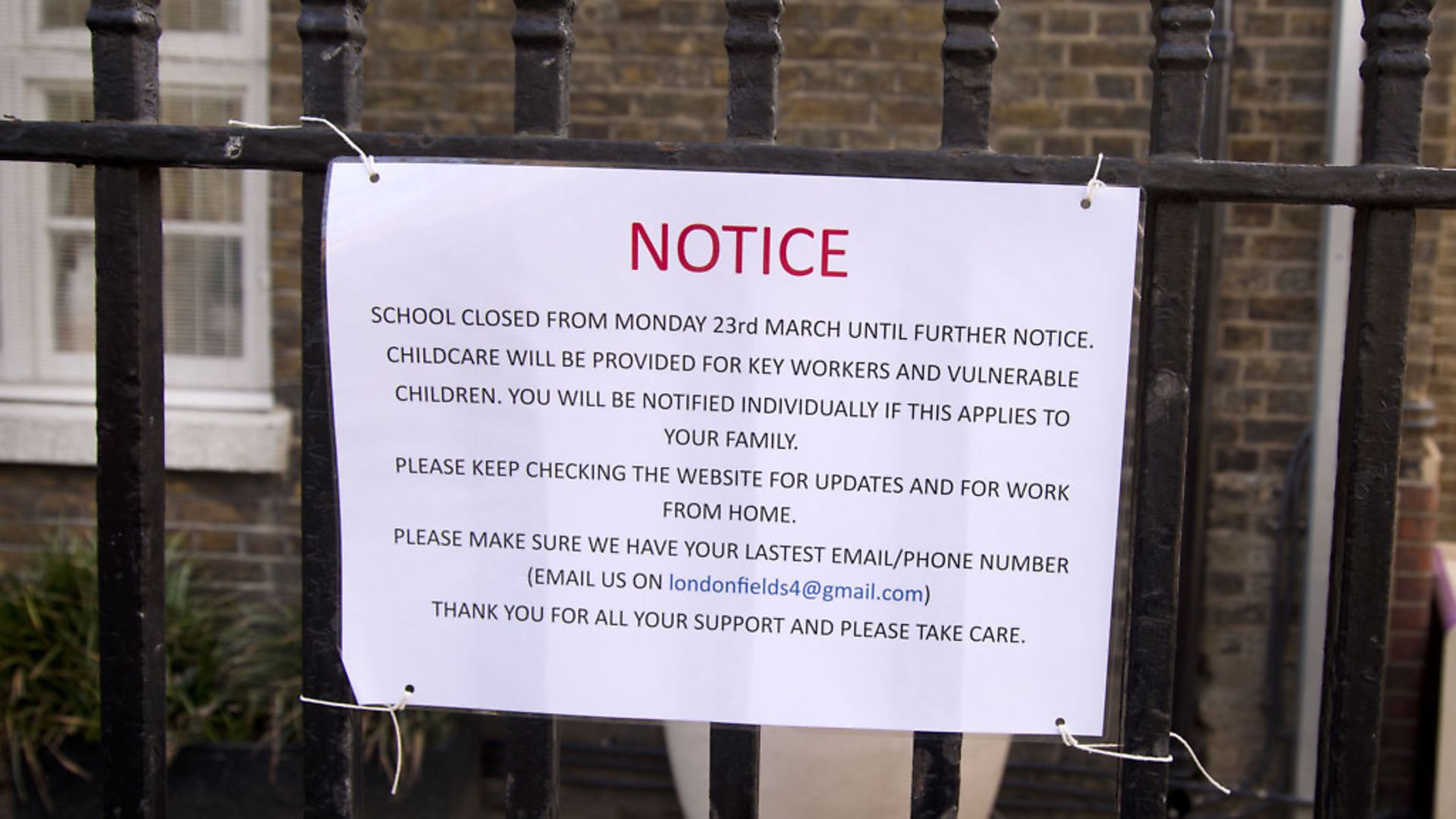
ZOE WILLIAMS offers comforting words for all those faced with the challenge of trying to home-school their children.
Sometime in 2013, I was congratulating myself for the astonishing foresight of my two (unplanned) pregnancies: since, by happy coincidence, my oldest was a September, my youngest an August, so even though they are two calendar years apart, there’s only one school year between them.
The acres of freedom when you pack them off, the newfound household discipline of actually having to leave it, the alarming simplicities (what are you going to wear? Why, these very same clothes you wore yesterday).
School is, as all of us discovered with a jolt on Monday morning, humankind’s most magnificent achievement. It does the social side and the discipline side, it can even, with a bit of peer pressure, do the grooming side, but most of all, it addresses that bizarre feature of the human condition once distilled so wisely by Johnny Ball: ‘Kids. You can’t teach them anything, but they learn everything from you.’
Why can’t you teach them anything? Nobody knows. They just, for some obscure reason, don’t want to hear it. I wonder if your voice changes when it goes into didactic mode, and the relationship screeches into a new gear, where all former intimacy is gone, like the first time the person you’re in love with tries to explain a video game.
And how, when they won’t even listen to you for long enough that you can explain what ‘non-compliant’ means, do they end up so precisely like you, right down to the face they make when they’re giving you a hot take?
Schools are more than irreplaceable: that initial, gigantic act of social generosity is fanned by a million daily echoes of its original kindness (God, do I miss Miss Sharkey, and it’s only been a week), so that – when you really stop to think about it – it’s no less astonishing today to watch your kids pootle into a school gate than it was for the first parent. Obviously, it would have been crazy, before now, to really stop and think about it.
So in the frenzy of trying to work at home and home-school your children at the same time, can I just throw in? You can’t. You can’t do what they do. So give yourself a break, and do what you want.
This is quite a sharp about-turn, since only a week ago I was interviewing brilliant teachers about how to get the kids through the curriculum – always set a timetable, build in physical activities, try not to speak at them, and when you have to, never for longer than their age in minutes, plus two; use words like ‘now’ and ‘next’ for younger children, and ‘get to f**k’, ‘I’ve unplugged the wifi’ for older ones. My respect for those teachers has only grown, but I just want to add: it’s not just because we’re not teachers that we can’t teach them; it’s also because they’re our children.
Past the age of about 10, they have their own work ethic; it might be terrible. They got that from you. It might be great, and put you to shame. Less than 10 days ago, we were talking as if they had to maintain the same academic effort they were putting in at school, if they were in an exam year. Now, there are no exams; the notion is that they’ll be awarded grades based on their predictions, which in the fullness of time, we should kick and scream about, since girls and BAME students are habitually under-predicted (who could possibly have guessed?).
But right now, that doesn’t matter. What matters is that we all stay sane. I had an argument with my 12-year-old yesterday about whether or not, if the question is, ‘how does Shakespeare convey the emotions of Hermia and Helena?’, one emotion each was enough; ‘it’s definitely not! It’s a progression, she only starts off paranoid, and after that she’s angry!’ ‘Paranoia is a pretty big emotion, I reckon that’s fine.’ This is not the way to stay sane.
It’s when they’re younger than 10 that you feel the most pressing weight of responsibility. You can see how malleable their minds are, how they can be ignited by the most unexpected thing, how they can fix on an obsession. If that turns out to be Peppa Pig, it’ll be your fault; they’ll just be bigger people if they’re obsessed with maps, or spiders, or the major religions of the world.
Curriculums were designed for a reason, you think. And they were – there’s nothing they’re missing now that they won’t, eventually, have to know. But we’ll deal with that en masse, in the recovery, when we have to deal with everything else, and if we just have to accept for one freak year that people can do long division at eight instead of seven, we will.
The flipside to the miracle of schooling is all the time you miss, that you don’t even notice you’re missing; that aching luxury of the untenanted hour. It doesn’t feel at all luxurious when there are 10 hours, back to back. So don’t hover, don’t helicopter, don’t tiger; set measurements to one side. Play three-card brag for three full months. Role model living for pleasure. You can’t teach them anything, but they learn everything from you.










